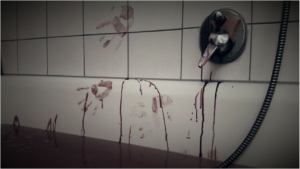Bodily fluids and dead bodies are not something that most people want to think about, but they are an important part of forensic science. Blood, urine, and other bodily fluids can provide clues about what happened during a crime, and they can be used to identify the victim or perpetrator. Dead bodies can also tell us a lot about how a person died, and they can help us solve crimes.
Forensic scientists often have to deal with gross and unpleasant things, but it is all in the name of justice. If you are interested in this field, then you need to be prepared to see some pretty gruesome things. But remember, you could be the one who solves the case!
Is blood dangerous?
Yes, blood and bodily fluids can be dangerous. They can transmit diseases and pathogens that can make people very sick. That’s why it’s important to take precautions when handling or coming into contact with them.
Some of the diseases that can be transmitted through blood and bodily fluids include HIV, hepatitis B and C, and syphilis. So it’s important to always use gloves and other personal protective equipment when handling these fluids. And if you do come into contact with them, be sure to wash your hands thoroughly afterwards.
In short, yes, blood and bodily fluids can be dangerous. But by taking some simple precautions, you can help protect yourself and others from the diseases they can transmit.
Be careful when cleaning up blood and bodily fluids
There are a few things you need to do when cleaning up blood or bodily fluids. First, you need to make sure that you are wearing gloves and other protective gear. Second, you need to remove any affected clothing and place it in a biohazard bag. Third, you need to clean the area with a bleach solution or another disinfectant. Finally, you need to dispose of the waste properly.
When cleaning up blood or bodily fluids, it is important to wear gloves and other protective gear. This will protect you from getting any diseases that may be present in the fluids. You should also remove any affected clothing and place it in a biohazard bag. This will prevent the spread of disease. To clean the area, you should use a bleach solution or another disinfectant. Finally, you need to dispose of the waste properly.
